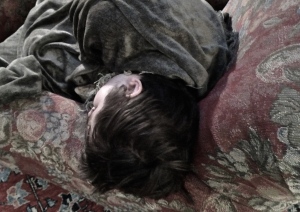
A version of this post appeared in April 2012.
We had an opportunity to share part of our story in a way that I felt I could finally add something to what seems to be an avalanche of autism dialogue. I can’t ignore the conversation; I learn from courageous and brilliant people every day. I cannot afford not to listen. But sometimes it’s hard to share – people we know with typical children (Is there such a thing? Discuss.) think we are unlucky, but we know how lucky we are. Context is everything.
At the turn of this century, out of necessity, we took a more novel approach to addressing autism because we saw gastrointestinal symptoms we felt we needed to ameliorate; it turned out to help us address autism as well. Karyn Seroussi was smart and brave enough to write a book about her boy, Miles, who sounded a lot like our boy. With her book as a guide, we collected data, we tried only things that would not jeopardize our child’s health, and when something didn’t work we stopped. But the fact is that a lot of it did work, and I remain mystified as to why people who treat their child with diet and gastrointestinal treatments are vilified by some parents and physicians.
Even my beloved mother accused me of using dietary intervention as a way of denying my son is autistic. She said that removing foods from his diet was a way of withholding love. But she was thousands of miles away; she did not see what I saw, she did not live what we lived. We had spent his earliest years first trying to figure out what was wrong, then in learning it was autism, in trying to figure out what caused it. But it soon became clear that what we needed to do what help the boy in front of us in whatever way we could. That has not changed.
So the years have brought an ebb and flow of interventions: gluten-casein free diet, yeast treatment, removal of artificial colors and flavors, soy, high-pectin fruits, and bananas. That’s what worked; it improved his health, and with improved health came the strength to deal with autism. After the first year, my mother heard the results and apologized; it was the most important parenting lesson of my life. We tried lots of other things with inconclusive results, and we went for long stretches without doing anything new at home while we made adjustments to his program at school. We have two other children in need of just as much love and attention, and balance is important to us. We resisted, not always successfully, letting autism take over our lives.
So when, in December 2008, Dr. Martha Herbert gave a talk at Massachusetts General Hospital about the whole-body approach to autism we listened, mouths agape, at someone who told our story without ever having known us. The story of that night and the days that followed is another post, but it led to our cooperation with Karen Weintraub on an article in the Boston Globe in March 2012 (it’s the same one linked in the first sentence of this post). We’d had other chances to be in the media but the central issue always seemed to point toward anger and controversy over schools and treatments – worthy causes, always, but not ones that merited public exposure of this particular family. Is that selfish? Maybe, but to me, at those moments, I felt only protective, and that sense of privacy always outweighed any sense of the greater good of going mainstream media.
Until Martha and Karen’s 2012 book, The Autism Revolution.
Karen, an eminently principled journalist and amazingly reasonable person, convinced me that we could preserve our privacy and tell the most unique parts of our journey in a way that did not make us look like every family should do what we did for our son’s autism. I heaped her with details and diatribes long dormant over the ten years since we began interventions. She graciously accepted my four-page answers to yes or no questions. She sifted through it all and, after putting up with our constant hand-wringing about privacy, composed an article that leaves us very proud to have worked with her.
Consequently, during Autism Awareness/Acceptance month, sometimes I feel like we are the hurricane, sometimes we are the eye. It changes minute by minute. But if one reads though the rest of this blog or it’s broader parent blog, LettersHead, you will not find evangelizing about causation or our intervention strategy – there are plenty of more useful places to read about that. For better or for worse, all I can bring myself to do is piece together the past in hopes that it will light the way for the future. And yes, sometimes that light turns out to be blue.



















